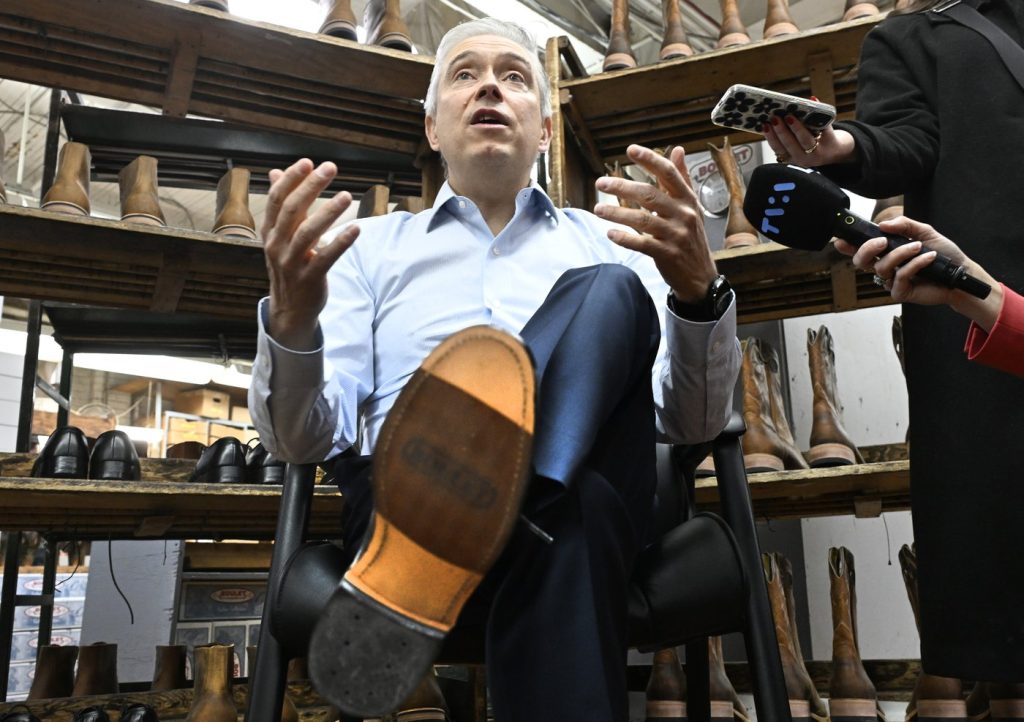OTTAWA – Prime Minister Mark Carney is gearing up to present his inaugural budget, which is characterized by significant capital spending initiatives alongside austerity measures. This crucial fiscal plan comes in the wake of a prolonged tariff conflict with the United States, Canada’s closest trading partner, ultimately causing a six-month delay in its release.
Finance Minister François-Philippe Champagne will take center stage on Tuesday to unveil the budget, navigating discussions with Carney, a former central banker known for his meticulous policy focus. The ongoing tariff battle adds a layer of complexity to the budgetary framework, underscoring its importance in safeguarding Canada’s economic health.
Champagne, 55, has a diverse political background, frequently contrasting with typical finance ministers known for their Bay Street connections. Rather than relying on traditional digital communication, he excels in personal interactions, which endears him to his constituents and Liberal colleagues alike. “He’s the biggest, most enthusiastic bundle of energy that we have in caucus,” said Liberal MP Marc Miller, who has worked alongside Champagne for the last decade.
The finance minister, often compared to an “Energizer Bunny” for his spirited demeanor, has also utilized a moniker once associated with former Prime Minister Jean Chrétien as the “little guy” from Shawinigan. According to Jonathan Kalles, a former adviser to Trudeau, Champagne’s roots in a small town and his representation of a rural riding will bolster his relatability as he aims to connect with Canadians grappling with rising living costs.
Past finance ministers under the Trudeau government, like Bill Morneau and Chrystia Freeland, struggled to establish rapport with everyday Canadians. Morneau faced challenges in communicating tax adjustments, while Freeland’s attempts to connect fell flat amid rising living costs. In contrast, Champagne is praised for his communication skills and his enthusiasm for engaging with the public, often deviating from his schedule to have direct conversations.
He is known to share his cell phone number openly, making it a point to follow up personally. Kalles notes that this ability to forge genuine connections enhances Champagne’s credibility, as he remembers past interactions with the public, allowing him to appear more authentic and relatable.
Recently, Champagne indicated that his exchanges with Canadians demonstrate a widespread acknowledgment of the need for transformative changes due to the current economic circumstances, likening the situation to the post-World War II era. His remarks underscore a call for a substantial shift in approach, signaling the importance of the upcoming budget.
Opposition Leader Pierre Poilievre has criticized the government’s spending plan, threatening an unfavorable vote if the budget fails to address the cost of living adequately. Poilievre admonished the government for potentially provoking an expensive election cycle with a costly budget, advocating instead for a more affordable fiscal strategy aimed at alleviating financial pressures on Canadians.
Champagne faces the dual challenge of defending both new spending initiatives and necessary cuts while introducing new accounting practices for the budget. Federal expenditures are anticipated to exceed targets set by the Conservative Party, while likely falling short of demands made by the Bloc Québécois.
Having entered politics in the Saint-Maurice–Champlain riding during the Trudeau surge of 2015, Champagne brings a decade of political experience. His career has progressed rapidly, from serving as parliamentary secretary to holding roles as infrastructure and industry minister. Additionally, speculation surrounding his interest in the Liberal party leadership has circulated, especially following Carney’s leadership victory earlier this year, although those discussions are currently on hold.











